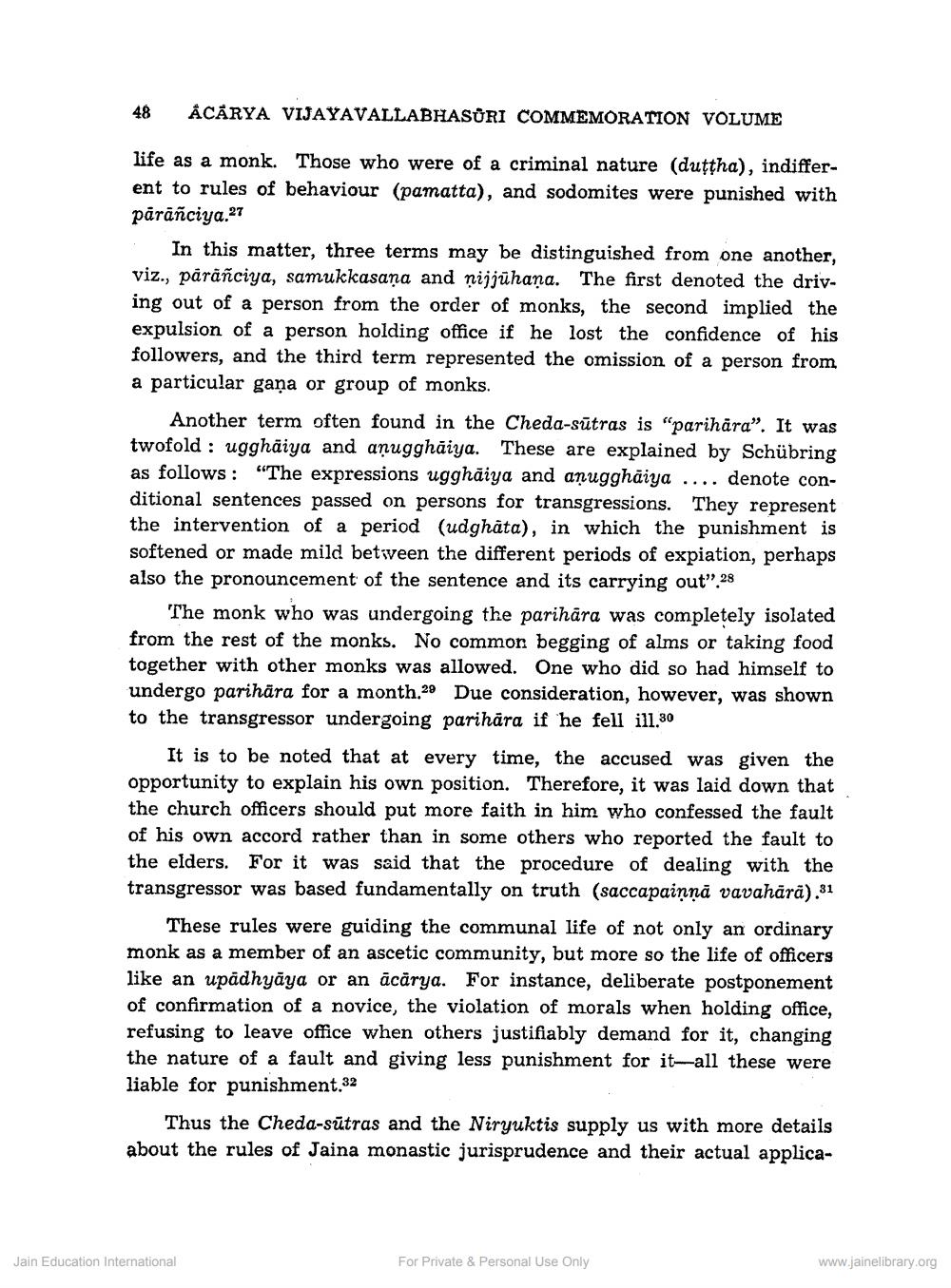Book Title: Some Aspects of Jaina Monastic Jurisprudence Author(s): S B Deo Publisher: Z_Vijay_Vallabh_suri_Smarak_Granth_012060.pdf View full book textPage 8
________________ 48 ÅCĂRYA VIJAYAVALLABHASŪRI COMMEMORATION VOLUME life as a monk. Those who were of a criminal nature (duttha), indifferent to rules of behaviour (pamatta), and sodomites were punished with parāñciya.27 In this matter, three terms may be distinguished from one another, viz., parañciya, samukkasaņa and nijjühaņa. The first denoted the driving out of a person from the order of monks, the second implied the expulsion of a person holding office if he lost the confidence of his followers, and the third term represented the omission of a person from a particular gaņa or group of monks. Another term often found in the Cheda-sūtras is "parihara”. It was twofold: ugghäiya and aņugghāiya. These are explained by Schübring as follows: "The expressions ugghăiya and anugghaiya .... denote conditional sentences passed on persons for transgressions. They represent the intervention of a period (udghata), in which the punishment is softened or made mild between the different periods of expiation, perhaps also the pronouncement of the sentence and its carrying out”. 28 The monk who was undergoing the parihara was completely isolated from the rest of the monks. No common begging of alms or taking food together with other monks was allowed. One who did so had himself to undergo parihāra for a month.29 Due consideration, however, was shown to the transgressor undergoing parihāra if he fell ill.30 It is to be noted that at every time, the accused was given the opportunity to explain his own position. Therefore, it was laid down that the church officers should put more faith in him who confessed the fault of his own accord rather than in some others who reported the fault to the elders. For it was said that the procedure of dealing with the transgressor was based fundamentally on truth (saccapaiņņā vavahärä).31 These rules were guiding the communal life of not only an ordinary monk as a member of an ascetic community, but more so the life of officers like an upadhyāya or an ācārya. For instance, deliberate postponement of confirmation of a novice, the violation of morals when holding office, refusing to leave office when others justifiably demand for it, changing the nature of a fault and giving less punishment for it-all these were liable for punishment.32 Thus the Cheda-sūtras and the Niryuktis supply us with more details about the rules of Jaina monastic jurisprudence and their actual applica Jain Education International For Private & Personal Use Only www.jainelibrary.orgPage Navigation
1 ... 6 7 8 9 10 11 12 13 14
